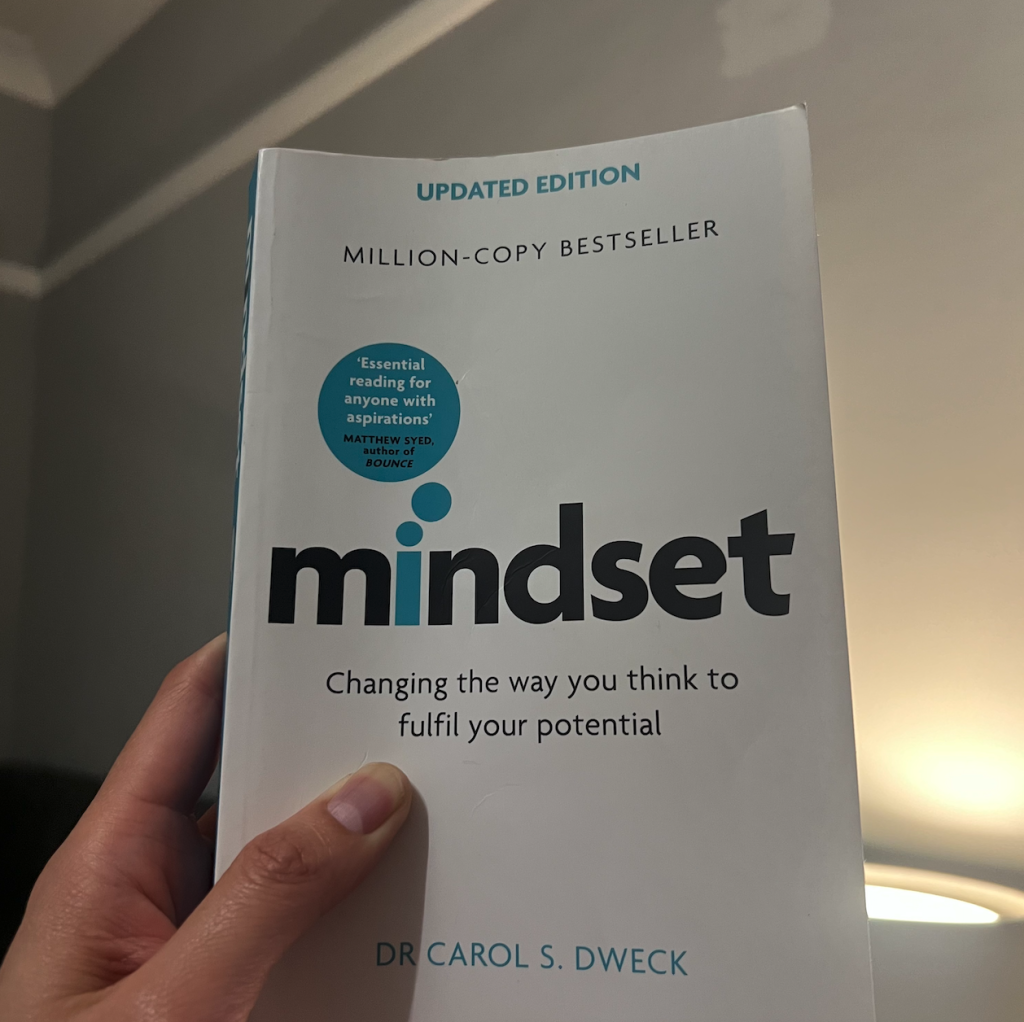Is this book even for me?
I was pursuing a bookstore — Waterstones, the Wimbledon location — and ended up purchasing Carol Dweck’s book titled “Mindset: Changing the way you think to fulfill your potential”, despite some initial hesitation. Before walking over to the checkout counter with book in hand, I picked the book off the shelf and skimmed the first couple pages and quickly learned that Carol Dweck posits there are two development mind sets: fixed and growth.

“Isn’t it obvious that a growth mindset is better generally speaking and I definitely possess a growth mindset, right?”, I thought to myself.
Turns out, like most things in life, it’s not so simple, not so black and white. In reality, as the book points out, there’s a general tendency for most people (me included) to possess a fixed mindset in some areas of our lives while at the same time, holding a growth mindset in other aspects.
In any case, so far, even after reading only the first three chapters, I’ve already not only started questioning some of my beliefs, but also recognized that some parts of my life where I’ve unknowingly and unconsciously held myself back from even making an effort — even trying — certain activities.
Two mindsets: fixed vs growth
So, what is a growth mindset anyway? It is the belief that through through consistent effort, strategies and help from others, you can develop certain qualities (e.g. smartness). This mindset differs to that of the fixed mindset, that certain qualities are set in stone, unmovable, and a consequence of this belief we may end up experiencing “urgency to prove yourself over and over again”.
With a fixed mindset, an individual’s underlying intention or motivation is driven to prove something about themselves. For example, say I consider myself “smart”. As a result of labeling myself as such, I may pursue certain activities that prove — over and over again — to both myself and others that I am actually smart. Or I may end up avoiding certain behaviors all together out of fear of disapproving myself.
In contrast, with a growth mindset, the main objective is to learn and growth. To this end, individuals with a growth mindset approach activities through the lens of learning, through applying effort.
Captured Quotes
“If you are somebody when you’re successful, what are you when you are unsuccessful?” (pg. 32)
“Becoming is better than being” (pg. 25)
The top is where t”he fixed-mindset people hunger to be, but it’s where many growth minded people arrive as a by-product of their enthusiasm for what they do.” (pg. 48)
“The growth mindset allows people to value what they’re doing regardless of the outcome” (pg. 48)
“What I mean is that even when you think you’re not good at something, you can still plunge into it wholeheartedly and stick to it.” (pg. 53).
Self Realizations
Avoidant behavior due to impact on (self-imposed) beliefs
As mentioned above, I for sure thought that I held a growth mindset across all domains in my life (personal and professional) but reading this book puts me in deep reflection. Already, I’ve self-discovered that I tend to avoid crossword puzzles, drawing art with a pencil, Rubik’s cube, building physical objects with my hands, all because I don’t posses the natural gift or talent. As a result of lacking these possessions, I avoid pursuing these activities all together since distort an image — of “smartness” — I hold about myself.
But now, it seems blatantly obvious that all those skills above — crossword puzzles, Rubik’s cube, building physical objects with my two hands — can be cultivated.
So, what can I put into practice, now?
Crossword puzzles? Rubik’s cube?
We shall see.
Leave a Reply